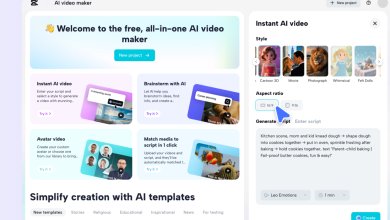
Consulting’s old foundations
Up until now, the consulting industry has been defined by scale.
Clients paid for the time and expertise of large teams who could spend months on research, benchmarking and strategy. Invoices were built on billable hours, and the more hours a firm could stack against a project, the more valuable it was judged to be.
I saw this model close-up during my time inside a Big Four consultancy. Activity was rewarded rather than impact. Hours were logged against tasks that were often repetitive and manual, while clients waited for insights that were slow to arrive. The model worked when information was scarce and consultants controlled the means of analysis.
But in an era where budgets are shrinking, data is everywhere and speed matters, businesses expect answers in weeks, not quarters – and rightly so.
The rise of productised AI consulting
Artificial intelligence (AI) has brought this outdated model into question.
In just three years, AI has gone from being a nice-to-have tool to an integral component of modern-day business, with Barclays’ latest report showing that nine in ten UK firms plan to invest in AI over the next two years to tackle problems that, until now, were unsolvable.
Nowhere is this truer than in the consulting industry – with AI already reshaping how knowledge is produced and delivered.
McKinsey – a household-name global consultancy – recently revealed that its internal generative AI tools have saved consultants around thirty per cent of their time. Gartner projects that by 2027, half of all business decisions will be automated or AI-augmented.
These are not incremental efficiencies, but signals that the rules of consulting are being rewritten.
AI consulting enables firms of any size to generate insight faster, test strategies before they are rolled out, and present clients with outcomes that are clear and measurable. It reduces the advantage of sheer headcount and opens the door to smaller firms who can compete on quality and speed rather than scale.
From projects to products
One of the biggest shifts lies in how services are delivered.
The consulting industry has long relied on bespoke, one-off projects. Each client brief started from scratch, and value was created through teams of people building tailored outputs.
AI upends that equation.
Instead of reinventing the wheel for every engagement, firms can codify their expertise into diagnostics, models and dashboards that can be deployed repeatedly. When I was consulting, I often saw the same frameworks being rebuilt again and again – a process that burned hours without adding real value. Now, those frameworks can be standardised, freeing time for what really matters.
That means consulting becomes less about time spent and more about systems that deliver consistent outcomes. Smaller firms in particular can take advantage of this, building repeatable services that scale without layers of bureaucracy.
For clients, this promises clarity and reliability. For consultants, it means spending less time on manual work and more time on interpretation, judgement and partnership. And for the industry, it marks a decisive turn away from measuring inputs towards rewarding results – a shift towards productised AI consulting.
Why smaller firms could lead
There is a paradox in this transformation.
The Big Four are best resourced to invest in AI consulting tools, but they are also most constrained by their reliance on billable hours. Their economics depend on time-based billing, and dismantling that foundation is not easy. Ironically, it is their sheer size that slows them down: layers of hierarchy and entrenched processes make them less nimble, leaving smaller firms better placed to adapt quickly and redefine how consulting is delivered.
Smaller firms – once at an obvious disadvantage in terms of size and cash flow – are now unencumbered by legacy models and able to adapt faster.
They can embed AI consulting directly into their operating approach, experiment with outcome-based pricing or even subscription models, and offer clients a relationship that feels both fairer and more transparent. In doing so, they do not just compete with larger firms; they redefine what consulting looks like.
This is not simply about efficiency. It is about credibility. Clients who might once have defaulted to the biggest brands are increasingly open to working with agile firms that can deliver sharper insight at lower cost. In that sense, the playing field is tilting in favour of the specialist and the nimble.
New expectations from clients
Client demand is also accelerating the change. Businesses are less interested in lengthy reports and more focused on measurable returns. They want speed, clarity and evidence that recommendations will improve performance. A recent IBM Consulting poll showed that more than eighty per cent of consulting buyers are actively seeking advisory services that use AI. The appetite for traditional, time-heavy projects is fading.
As productised AI consulting becomes the norm, firms that cannot offer it will struggle to meet expectations. Those that can harness the technology and create tangible value will be the winners – it’s as simple as that.
Navigating the risks
None of this is risk-free. AI consulting is only as reliable as the data it draws from, and consultants must take responsibility for validating outputs. Clients deserve transparency on where and how AI has been applied in analysis. And the move towards outcome-based fees should not incentivise reckless strategies that produce short-term gains at long-term cost.
Handled responsibly, however, these challenges are manageable. More than that, they provide an opportunity for the consulting industry to rebuild trust by being clearer, fairer and more accountable.
Consulting’s future
The consulting industry stands at a turning point. The billable hour, once untouchable, is losing its dominance. In its place, AI consulting is driving a model where outcomes matter more than inputs, where speed and clarity are valued above process, and where smaller firms have a genuine chance to lead.
For clients, the benefit is faster and fairer insight. For consultants, it is the chance to spend more time on creative thinking and client partnership. For the industry as a whole, it is an invitation to return to its original purpose: solving problems, not selling hours.
The firms that will succeed in the future of consulting are not those with the largest headcounts but those who can deliver the clearest outcomes. That, ultimately, is the promise – and the challenge – of productised AI consulting today.
The winners in consulting’s next chapter won’t be those who count the most hours – but those who deliver the clearest outcomes.



